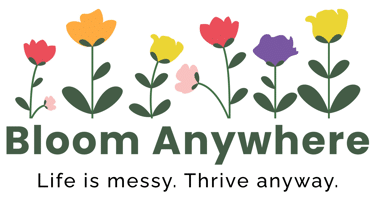It often starts with a sense that something isn’t right or the knowledge that something big is about to change everything. You might be feeling dissatisfied with your job. You may have children that are going to school or becoming more independent. Or you may be feeling a sense of disquiet; you want something to change.
Those feelings can lead to uncomfortable questions. How do you change it? How do you measure self-worth if a large measure of it comes from the very thing that’s making you feel unease? And, even if you have an idea of what you want, how do you even begin to make the changes necessary to make it happen?
You need a pivot.
Looking for the next thing in your life, whether it’s moving on or moving up, isn’t easy. But it’s can be a time of great promise and hope, too, if you let yourself think that way.
Let’s say you’re unhappy with your job or you want to change how you’re spending your days. The reasons not to make a change can start piling up.
- Leaving the security of your current role for something that might not work out
- Facing the possibility that trying something new won’t work out
- Overcoming obstacles like time, expense, and lack of knowledge, contacts, or experience
- Dealing with imposter syndrome or fear
- Listening to others who tell you that you can’t do what you want to do
- Feeling like you can’t put your needs before the needs of others
Those are just a few, but they’re real. And they apply to many situations where change is needed or wanted. Perhaps you want to make your body stronger or you’re trying to overcome financial hardship: those same fears, risks, and obstacles can be daunting.
Make your escape plan
But what if you started creating a plan—something to anticipate? You don’t even need to act immediately, although you certainly may if you wish. Instead of sitting with the discomfort and fear, what if you started sketching out what you want to happen next? Use a journal or the simple Bloom Anywhere goal-setting sheet (you’ll get an email with your goal plan when you complete it).
Oh…a side-note about the value of writing down your goals: There is a widely circulated “study” of the Yale Class of 1953 (sometimes attributed to the Harvard Class of 1953) that “proves” the power of writing down goals. Everyone from Tony Robbins to Zig Ziglar has cited the study in their books. But it doesn’t exist, as Lawrence Tabak researched and revealed in this piece for Fast Company in 1996. (There are lots of ghost stats like this online.) A small study by Gail Matthews at Dominican University found a correlation between writing down goals plus accountability and achievement. The reason I suggest writing them down is because:
- Writing, sketching, and doodling can be an outlet for you to explore ideas and trigger creative thinking
- You may have a great idea or insight and not remember it if you don’t write it down
- Some small studies have shown a correlation between learning and writing
- Writing and journaling can be great stress-relievers
So, while there’s not a straight line between writing down goals and achievement, there are enough good reasons to give it a shot.
Nurture your ideas
As you begin to let yourself envision what you want to happen next, many thoughts will bubble up, and they may dissuade you from action. Let those thoughts go for now. There may be real challenges ahead, but you can deal with them later. Think about what will make you happy. What will bring you peace?
You may start down this road and realize that you just needed the possibility of something new—and, maybe, a break from your routine—to put the unease to rest. That’s great. The understanding that you have choices is tremendously freeing. But if you sit with the ideas longer and feel them start to take root, you’re at the beginning of an exciting process.
At this point, be judicious in telling others about what you have in mind. When you’re trying to make a change that requires immediate support and environmental changes, it may be useful to tell the people around you. For example, when you’re trying to give up smoking or drinking. That way, they will be aware and possibly less likely to inadvertently undermine your efforts. You can also get support. However, change in the form of achievement—starting a new career, going back to school, etc.—can be threatening to others around you. You may find unexpected saboteurs. So, be careful who you tell before you have made your decision to move forward.
That’s not a hard-and-fast rule, but it’s good food for thought. For now, nurture your baby goal plan and feed it with the information and resources you need to make it stronger. And keep dreaming.
